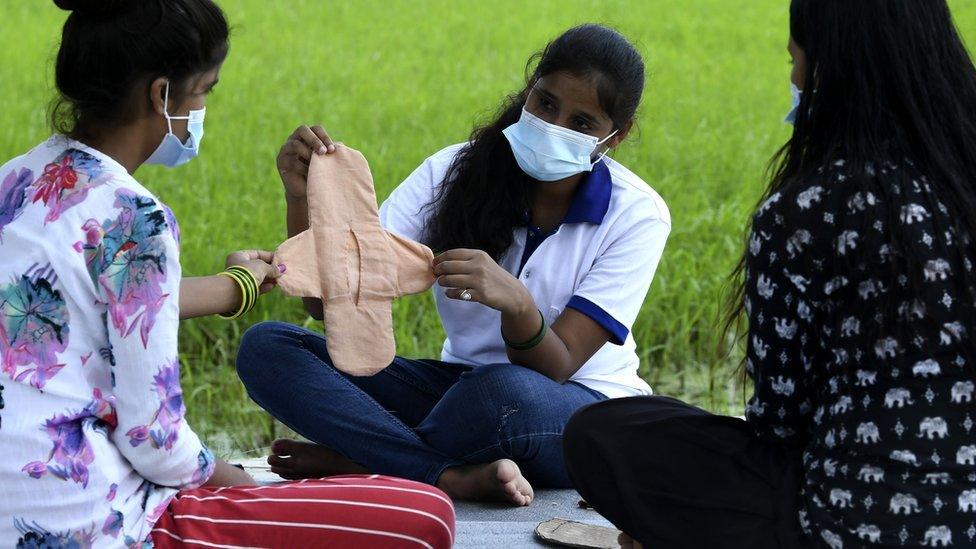Covid: God may punish Nepal for cancelling rites, religious leaders warn
- Published
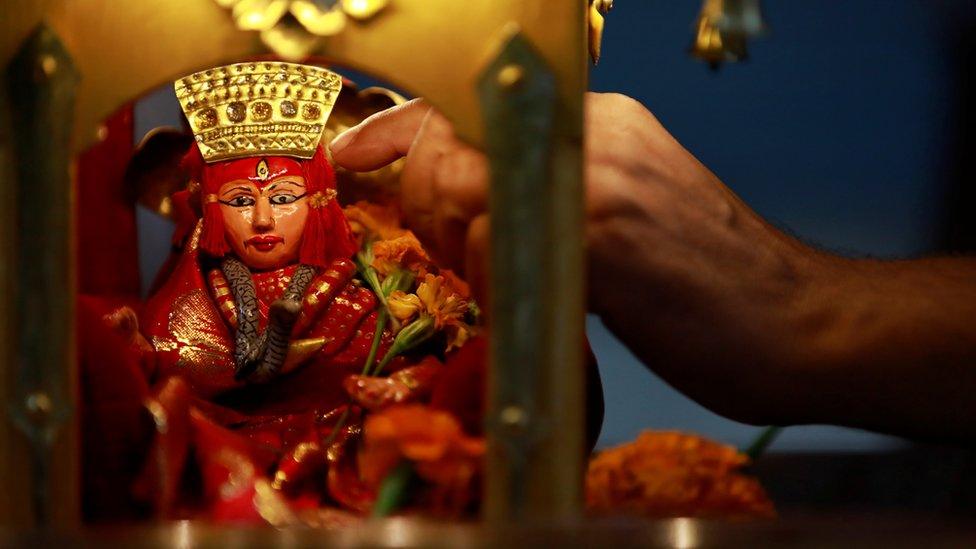
An idol of the Living goddess Kumari is pictured inside a miniature chariot
A number of religious leaders in Nepal have strongly criticised the government for scaling down festivals and centuries-old rituals because of coronavirus fears. The leaders warned that "divine anger" could lead the country into catastrophe.
Temples are closed and mass gatherings are prohibited following a lockdown since March.
Officials say it is unlikely restrictions will be lifted ahead of the major festivals of Dashain and Tihar, which fall during the months of October and November respectively.
Nepal, with its unique juxtaposition of Hindu and Buddhist culture and lifestyle, has seen few festivities during the pandemic.
In the capital Kathmandu, rituals including chariot processions involving large crowds to honour different deities, were either cancelled or reduced to small ceremonies.
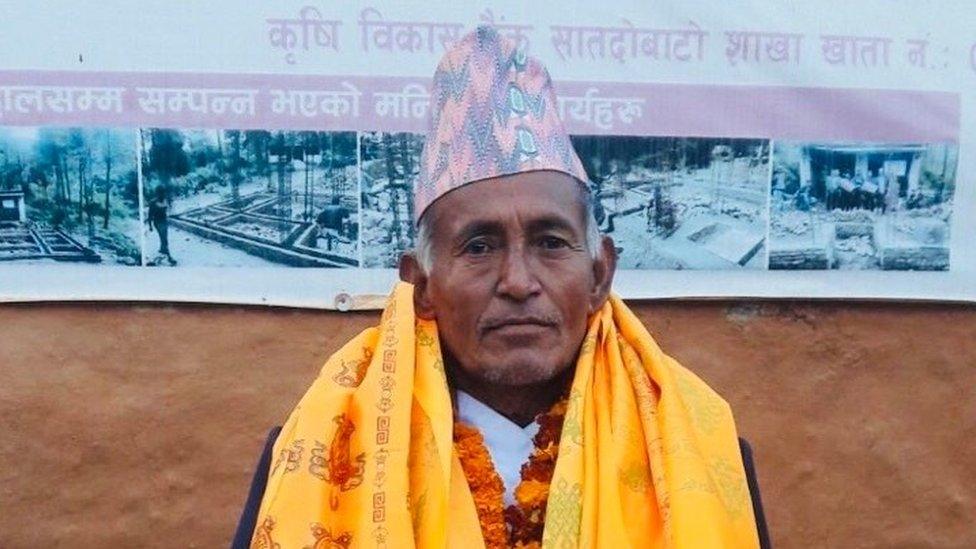
Kapil Bajracharya is sad at not being able to perform his role
Last month, clashes broke out in southern Kathmandu after angry protesters defied the government's lockdown orders to attend Rato Macchindranath Jatra, a chariot procession in honour of the god of farming. The ritual was conducted later - on a much smaller scale and with a police presence.
Kapil Bajracharya, the main priest leading the Rato Machhindranath Jatra (a chariot procession in honour of the god of farming), says it is very irresponsible of the government to curb religious activities.
"My family has been conducting the ritual for centuries. I feel very sad that in my tenure I was not allowed to carry out the chariot procession. As far as I know, it has never been cancelled before."
The 72-year-old added: "I believe that Nepal is a sacred home for gods. If the gods are angry, we will land into more severe problems than coronavirus. I have a serious objection against the Nepali government's control of religions, which bounds on the sinful as far as I am concerned."
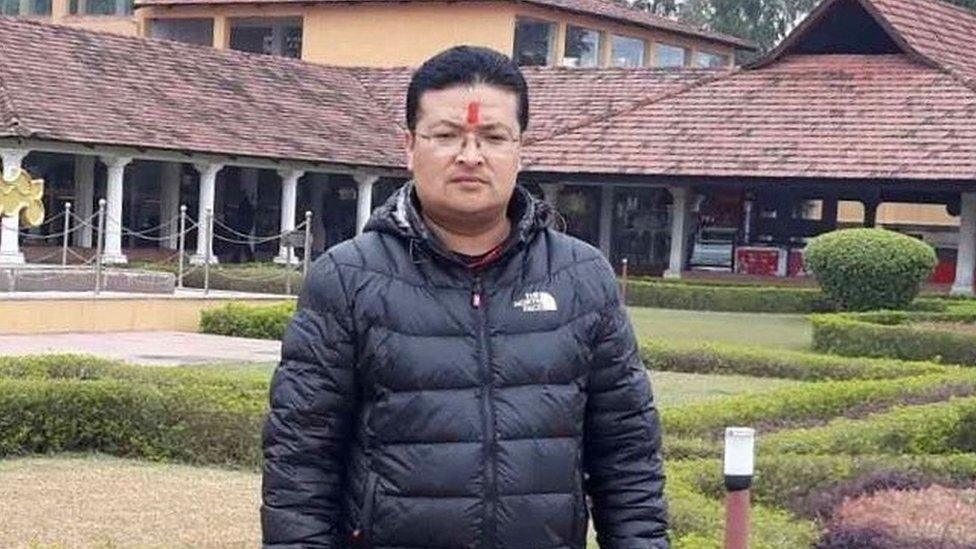
Schoolteacher Bikash Karmacharya fears that not honouring gods may backfire
Baburaja Jyapu, a 38-year-old businessman in Patan, also believes that the Nepali government's decision is hurting people's religious sentiments: "I have a strong belief in religion and I think not getting engaged in religious activities can invite a bad omen.
"In my view elderly people are more eager to visit religious places. If the government continues restrictions, people will have mental health issues."
Many community and religious leaders, however, say that this year should be considered an exception and any religious and festive activities should take place only after safety has been assured.


Follow the science
Gautam Shakya, a caretaker for Kathmandu's living goddess Kumari, who lives in a special temple near the traditional Palace Square - says they are abiding by safety protocols and it is unlikely that there will be a large-scale event this year.
"We are yet to discuss with the government regarding the goddess's presence at Taleju temple during the eighth day of the Dashain festival. I think there will be no crowds this time like in the past. But we cannot take risks by taking her there."
"Some people fear that bad things may happen if we don't worship properly," he adds. "But in my view, we should be realistic. We can organise festivals and rituals and preserve our culture for the future generation only if we survive."
Kumari, believed to be the reincarnation of the Hindu goddess Durga, is worshipped both by Hindus and Buddhists.
"Since the lockdown, we have not let anyone visit her. We are doing regular prayers and conducting the worship inside her residence by ourselves," Gautam said.
He said the living goddess was also using masks and sanitisers inside her residence, popularly known as Kumari Ghar.
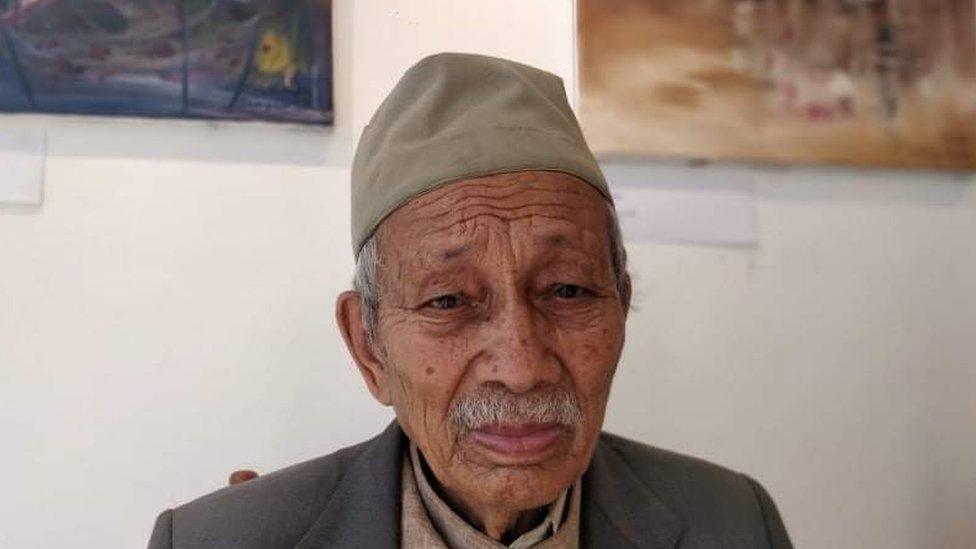
Satya Mohan Joshi wants people to move with the times
Nepali cultural icon Satya Mohan Joshi says people should follow science rather than just talk about festivals or rituals.
The 101-year-old cultural expert said: "In the past, pandemics were viewed as a curse from the gods.
"People in Kathmandu would gather in alleys to offer food and conduct prayers to seek forgiveness. That's an outdated idea now.
"In the name of conducting festivals and organising feasts, we cannot take risks that may cause the spread of coronavirus in Kathmandu.
"That would shatter our economy and health service. We should keep ourselves safe by following the guidance issued globally by the medical community."
Home ministry spokesman Chakra Bahadur Budha defended the government's decision to restrict group worshipping, fairs and festivals.
"We have asked people to maintain social distance and self-discipline," added the Nepali official.
Hari Shankar Prajapati, a shopkeeper in Kathmandu, agrees. "Any crowd could trigger a massive infection," he says. "For me health comes first. We cannot conduct our festivals or religious events if our health is not good."
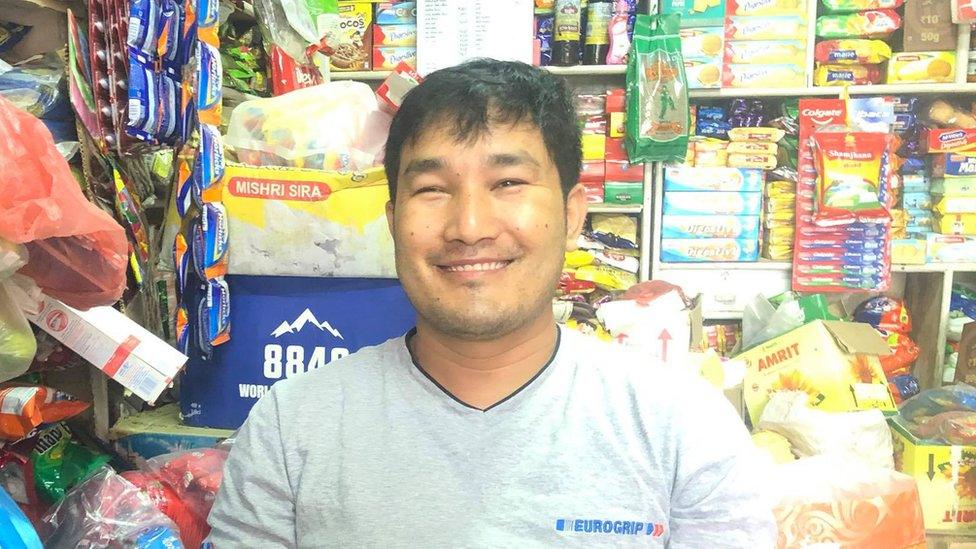
Hari Shankar Prajapati urges a cautious approach
But Padma Shrestha is furious. "The government has created terror and people are angry," he says. "Prohibiting centuries-old worshipping or rituals could make people lose their faith both towards religion and the government," he warns.
Occupying the middle ground, Bikash Karmacharya, a schoolteacher on the outskirts of Kathmandu, wants festivals to be held "by following safety and social distancing measures".
"Our failure to offer due respect to gods and goddesses may backfire. We should agree that god is our source of strength."
As of 30 September, there have been nearly 78,000 confirmed Covid-19 cases and 500 deaths due to coronavirus in Nepal.
Infections are on the rise in Kathmandu and there are fears that the disease could spread further as people travel home during the festivals.
- Published13 March 2020
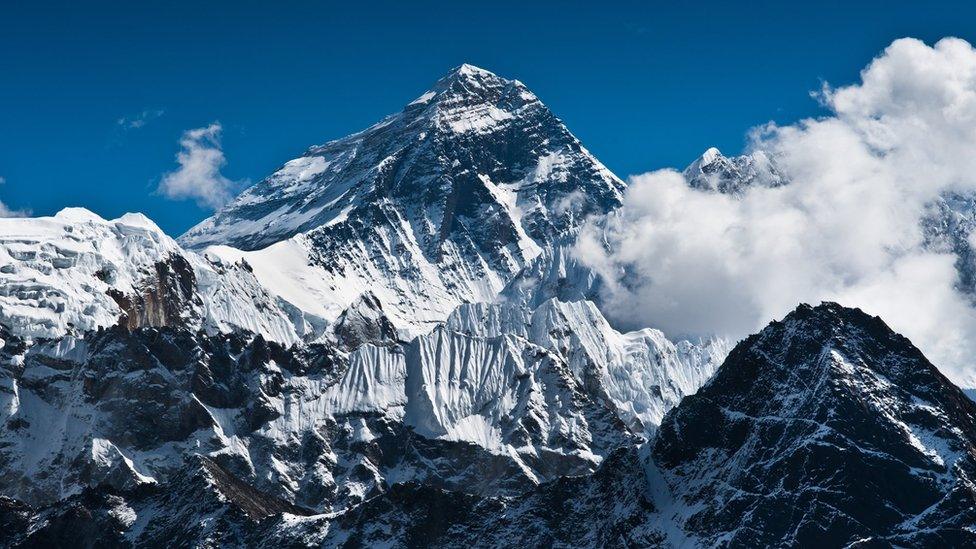
- Published21 September 2020
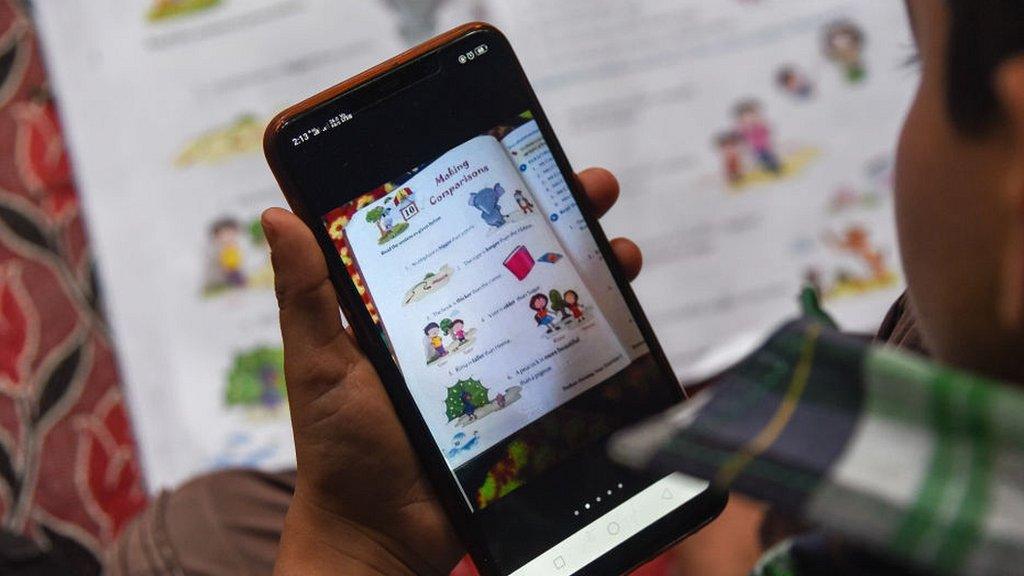
- Published11 August 2020
